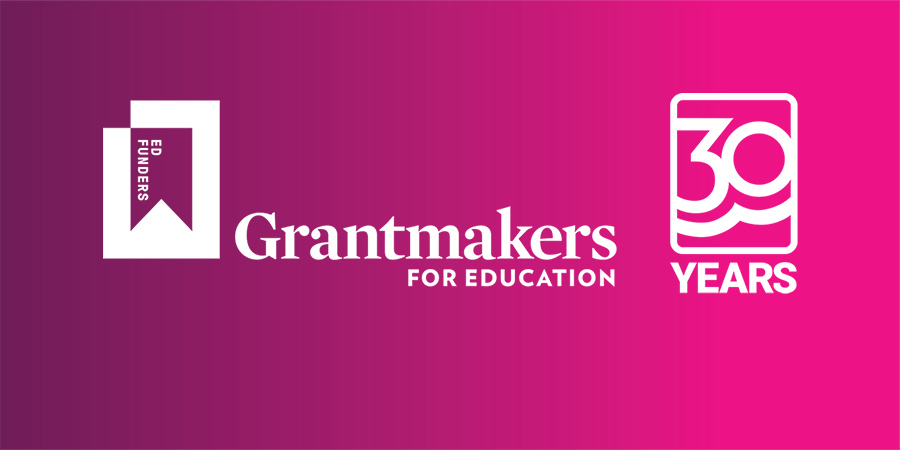Whether a response to lackluster academic gains in our nation’s schools or longstanding beliefs about the wider purposes of schooling, social and emotional learning (SEL) has gained a massive following in education circles.
Resources
Knowledge begins here
but never ends.
Curated reports, deep research, informational articles, podcasts. Everything you need to stay well
informed in the world of education grantmaking.
Celebrating 30 Years of Grantmakers for Education

We’re excited to spend 2025 honoring the 30-year anniversary of the founding of Grantmakers for Education! Learn more about what's ahead and see a bit of our history.
Landscape Scan of Postsecondary Funder Collaboratives
Grantmakers for Education's Top 10 of 2024
FILTER RESOURCES
SEARCH RESOURCES
Truth in Our Classrooms Bridges Divides: A Messaging Guide
Championing Equity: A Toolkit for Funders Seeking to Invest in Immigrant and Other Bilingual or Multilingual Children
The Intersection of Anti-Black Racism and Adolescent Development
This report summarizes research on how racism and related inequities impact key developmental milestones of adolescence and offers recommendations to support Black youth within key social contexts of the middle and high school years.
Social and Emotional Learning Implementation with Latinx Learners
This research brief series highlights key findings and implications from research conducted by ACT in collaboration with Region One Education Service Center, a provider of educational services to over 430,000 students in South Texas who are primarily Latinx and from low-income communities.
How to Sell SEL: Parents and the Politics of Social-Emotional Learning
Going Beyond ESSA Compliance: A 50-State Scan of School Spending Reports
Thanks to the Every Student Succeeds Act (ESSA), states have added per-student school spending information to school report cards — putting that information in the hands of parents, advocates, and other community members. Compliance with ESSA is a solid starting point.
Submit A Resource
Expand your audience by expanding minds.
We believe in getting research and insights into more hands to support learning for our peers and community. Share your resources that would be useful to education grantmakers.





